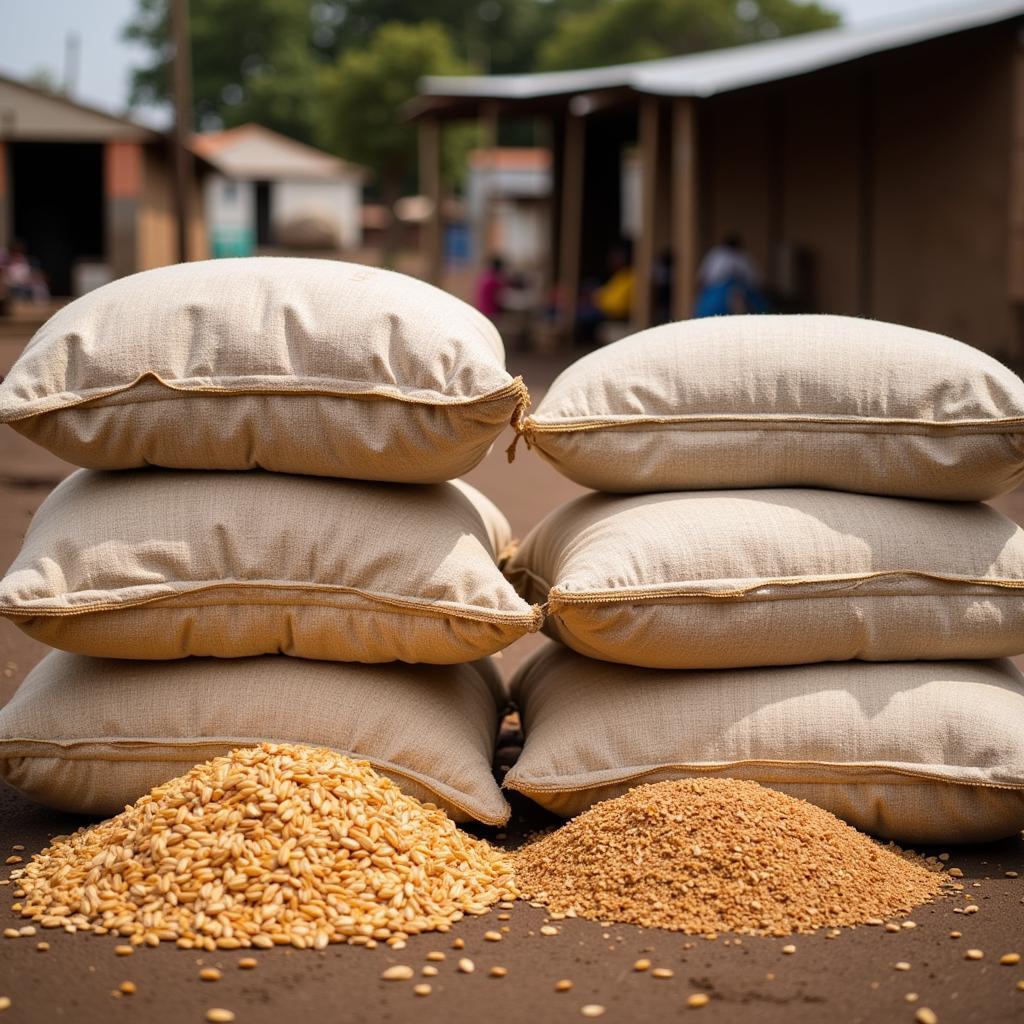10 Major African Imports: Unpacking the Continent’s Trade Dynamics
Africa’s import landscape reflects its evolving development needs and its growing integration into the global economy. Understanding the 10 Major African Imports provides valuable insight into the continent’s priorities and its economic trajectory.
Decoding Africa’s Top 10 Import Commodities
Africa’s import profile is diverse, ranging from essential goods like refined petroleum and pharmaceuticals to machinery and vehicles that support industrial growth. This diverse range of imports highlights both the continent’s strengths and its ongoing challenges in achieving sustainable development. What are these key imports driving Africa’s economic engine?
Refined Petroleum: Fueling Growth and Development
A significant portion of Africa’s import expenditure is dedicated to refined petroleum products. This reliance underscores the continent’s energy needs, powering transportation, industry, and daily life. However, it also highlights the need for greater investment in domestic refining capacity and renewable energy sources.
Pharmaceuticals: Addressing Healthcare Needs
Access to essential medicines and healthcare remains a pressing concern across Africa. The import of pharmaceuticals addresses this crucial need, but also emphasizes the importance of developing local pharmaceutical industries to ensure affordability and accessibility for all.
Vehicles: Driving Connectivity and Commerce
The import of vehicles, including cars, trucks, and buses, plays a vital role in facilitating trade, transportation, and connectivity across Africa. As the continent’s infrastructure continues to develop, the demand for vehicles is expected to rise, further integrating African economies. The African Continental Free Trade Area Nigeria has a significant role to play in this.
Machinery: Powering Industrialization and Manufacturing
Machinery imports, including industrial equipment and specialized tools, are essential for driving Africa’s industrialization and manufacturing sectors. These imports enable the production of goods locally, fostering economic diversification and job creation. For example, the African diamond business relies heavily on imported machinery.
Wheat: Ensuring Food Security
Wheat is a staple food in many parts of Africa, and its import helps bridge the gap between domestic production and consumption. Ensuring food security remains a top priority, and wheat imports contribute to meeting the dietary needs of a growing population.
 Wheat Imports and Food Security in Africa
Wheat Imports and Food Security in Africa
Other Key Imports Shaping Africa’s Economic Landscape
Beyond the top five, other significant imports include:
- Packaged Medicaments
- Telephones
- Electrical machinery and equipment
- Plastics in primary forms
- Iron and Steel
These diverse imports contribute to various sectors, from healthcare and communication to infrastructure development. Understanding their significance provides a comprehensive view of Africa’s trade dynamics. Speaking about trade dynamics, the African rand plays a crucial role.
What Drives These Imports?
Why does Africa rely on these imports? Several factors contribute to the import patterns we see today:
- Developing Industrial Base: Africa’s industrial sector is still developing, leading to reliance on imported machinery and manufactured goods.
- Growing Population: A rapidly growing population increases demand for essential goods like food and pharmaceuticals.
- Infrastructure Development: Ongoing infrastructure projects necessitate the import of materials and equipment.
- Global Integration: Increased integration into the global economy exposes African markets to a wider range of goods and services.
“Investing in local production and regional trade within the African Continental Free Trade Area Nigeria is key to reducing reliance on imports and fostering sustainable economic growth,” says Dr. Abimbola Adebayo, an economist specializing in African trade.
Future of African Imports
As Africa continues to develop, its import profile is expected to evolve. Investments in local production, regional trade agreements like the African Continental Free Trade Area Nigeria, and a focus on sustainable development will likely shape the future of African imports. One example of such investment is the African Industries Group Wiki. This could lead to a shift towards importing more advanced technology and specialized equipment, while reducing reliance on basic goods.
Another factor influencing the import landscape is the increasing purchasing power of the African consumer. As incomes rise, demand for consumer goods is expected to grow, influencing the types of products imported. A valuable resource on this topic is 26.09 African in AED.
In conclusion, understanding the 10 major African imports offers a glimpse into the continent’s dynamic economic landscape. While these imports play a crucial role in meeting current needs, the focus on developing local capacity and promoting intra-African trade is essential for achieving sustainable economic growth and reducing reliance on external sources.
FAQ
- What is the most imported commodity in Africa? Refined petroleum.
- Why does Africa import so much wheat? To meet the food security needs of a growing population.
- How can Africa reduce its reliance on imports? By investing in local production and regional trade.
- What role do vehicle imports play in Africa’s development? They facilitate trade, transportation, and connectivity.
- What is the significance of pharmaceutical imports in Africa? They address critical healthcare needs.
- How does machinery import contribute to Africa’s economy? It supports industrialization and manufacturing.
- What is the expected future trend of African imports? A shift towards more advanced technology and specialized equipment.
For any assistance, please contact us at: Phone: +255768904061, Email: [email protected], or visit our office at: Mbarali DC Mawindi, Kangaga, Tanzania. We have a 24/7 customer service team.
